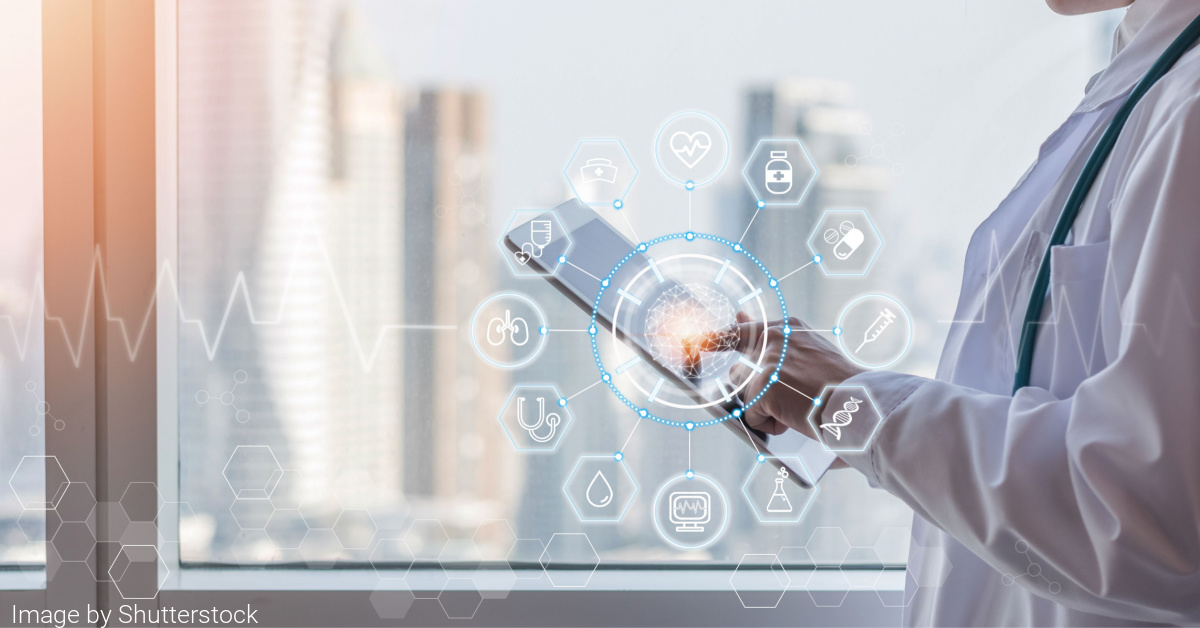AI Breakthroughs in Medical Science
- July 4, 2023
- Posted by: Aanchal Iyer
- Category: Artificial Intelligence

Whether Bing or Chat GPT, 2023 is the year that sheds light on artificial intelligence (AI) entering into popular consciousness. In the medical field, every organization is looking for ways to integrate any form of AI into the digital features of its products or services.
So, how exactly can AI help advance medical science and healthcare in general? This blog gives some examples of how AI is helping advance the medical field. Read on.
Ways in which AI is Helping in the Medical Field
Health care is an important and increasingly tech-no-logical area. AI sub-technologies like Machine Learning (ML), Natural Language Processing (NLP), and Data Science also help identify healthcare needs and solutions faster and more precisely. Take a look at the best examples of how AI is revolutionizing the medical field.
Helping Physicians Quickly Detect Medical Problems
AI can help gastroenterologists, radiologists, and others quickly identify potential diseases in the many images they have to review every day. Just take GI Genius as an example – an AI-assisted colonoscopy tool created to help identify polyps that could lead to colon cancer. The technology has been developed and manufactured by Cosmo Pharmaceuticals and Medtronic has obtained exclusive rights as a worldwide distributor of the same. GI Genius’ AI-based advancements help physicians remain focused by including green boxes in and around areas that could require need extra scrutiny during the imaging procedure.
Another great example is Viz.ai securing FDA clearance for its AI-powered algorithm developed to identify and triage care for Abdominal Aortic Aneurysms (AAAs). Viz AAA automatically analyzes CTA scans for suspected AAAs.
Enabling Better and More Discreet Health Monitoring
AI can enable quieter sensor networks. As a result, patients and doctors can acquire knowledge with minimal stress. For example, Sensydia undertook many clinical studies and completed enrolment in a 225-subject developmental study for its AI-powered cardiac performance system (CPS). The Los Angeles-based organization has designed the non-invasive CPS device to evaluate cardiac sounds and provide clinicians with a comprehensive cardiac assessment of patients within 5 minutes. Meanwhile, Boston-based Biofourmis has AI-driven software to collect and evaluate patient data in real time to identify changes that require proactive interventions. She partnered with Japan-based pharmaceutical giant Chugai to measure the amount of pain in women with endometriosis.
AI-Enabled Prosthetics
Advanced AI algorithms have the potential to enable individuals to use myoelectric control which involves discreet electric signals within their muscles to control robotic prosthetics. For example, Ottobock has its Myo Plus pattern recognition system for trans-radial users. Myo Plus enables the system to adjust to the natural movements versus requiring the user to adapt to the system.
Better Visualization During Surgery
Activ Surgical announced has completed the first AI-enabled surgery by using its ActivSight Intelligent Light product. Created to offer enhanced visualization and real-time, on-demand surgical insights in the operating room, the ActivSight model attaches to robotic and laparoscopic systems and can be integrated with standard monitors. The first AI-enabled ActivSight surgery took place on Dec. 22, 2022, at the Ohio State University, Wexner Medical Center. The company quotes that its goal is for every surgical imaging system to offer intelligent information, minimizing surgical complication rates.
Improved Data Collection from Medical Settings
AI can help with surgical data collection. Proprio has launched its AI-powered surgical navigation system into operating rooms to collate data. The data will ultimately help surgeons enhance the way they perform procedures. The Seattle-based startup has incorporated its Paradigm visualization and navigation system in several U.S. Operating rooms to record surgical data that can be used for accelerating the system’s development.
Making Better Sense of Patient Data
GE HealthCare last year unveiled its Edison Digital Health Platform, an AI-powered, vendor-agnostic data aggregation platform. The MedTech giant has quoted that the platform is to enable the easy deployment of workflow, clinical, analytics, and AI tools, connecting devices and other data sources within an aggregated clinical data layer.
The Ability to Crack Tough Scientific Problems
DeepMind’s AlphaFold AI predicted the structure of more than 200 million proteins. DeepMind, which has the same parent company as Google, has an AI system called AlphaFold that predicted the structure of more than 200 million proteins, which represent almost every known protein that has been cataloged. Applications of the AI system include speeding up the discovery of drugs for neglected diseases, battling antibiotic resistance, evaluating the nuclear pore complex, developing a novel malaria vaccine, shedding light on genetic variation, contributing to drug development neurological diseases and cancer, and so on.
Conclusion
Disruptive trends like ML, NLP, robotics, and so on will play a big role in answering complex questions. Also, various other AI applications are awaiting approval to hit the market. Once these apps reach commercial facilities, the potential to save lives will improve exponentially.
